ASF 005: Marcin Szeliga interview
Introduction
Marcin Szeliga – Data Philosopher. Since 2006 invariably awarded Microsoft Most Valuable Professional title in the Data Platform category. A speaker at numerous conferences across Europe, as well as at user groups meetings. The author of many books and articles devoted to Microsoft Data Platform. An independent consultant, database-centric application practitioner and architect totally focused on SQL Server and Azure. Huge fan of Data Science and Machine Learning.
Listen to the story of the most experienced Polish MVP. Marcin explains his point of view on work-life balance and what is the future…
Transcript
Hi Marcin, thank you for accepting my invitation. What is your name and where are you living?
Well, so, I am Marcin. I am living in the Upper Silesia, the best part of Poland.
What do you do for a living?
Ha! Tough question! From the very beginning. I am an independent consultant working with data, and Microsoft Data Platform for the last twenty years, mostly with SQL Server and Azure.
And how long or from since have you been working with SQL Server?
Since SQL Server 7.0. So 1998, something like that
Do you have your favorite tools you use during your work?
Wooow.
Apart from the Management Studio. Something which is really cool.
Yes. Actually, it depends on the task. Quite recently I have been arranged to fix some performance issues, troubleshooting, so for this, there are all those great scripts from the community – from Adam Machanic, Brent Ozar, Glenn Berry – stuff like that.
If you are asking about tools – I am using the best tools I can find to solve my tasks. Like those scripts. When I am working with the data analytics there are probably the R libraries.
So you are basically tools, sorry, the scripting guy. You like scripts the most.
Well well, what do you think about “the most”.
The most. So the graphical tools are not fine for you and you prefer to write scripts because you can probably automate them mostly.
Yes, that is the great “pro” of using that kind of tools because at the beginning you spend more time or you have to be lucky and find the tool that is ready to be used. But afterward, it is a piece of cake. Always pleasure. So yes, let’s say I am a scripting guy.
And you must be using a lot of the R Studio
Yes, that’s true. I have started working with R just a few years ago and actually, the best part of R are those 10 thousand plus libraries ready to be used. R is not the most end-user-friendly language and the R Studio is not the best development environment, but those libraries can solve all your problems immediately. And that’s something I really like.
For sure you can find appropriate library among those 10 thousands libraries
Absolutely you are right. It is not easy to find the right library among. Fortunately, there is a huge community around R and it’s very active. So you just ask a question and will be answered pretty promptly. And besides that there are golden standards like ggplot, you just have to follow the main path, and you will be most of the time fine.
Did you have a situation with your work with the R language that you were not able to find an appropriate library?
Let me think. I am… Funny thing., Two years ago I had to process some medical data about cancer. So graphical data. And turned out that there is a R library specifically for this ready to be used. So no – to answer your question –no- I always found one.
So, it was already someone who wrote the library down.
Yes
How sure can you be about those libraries? Are they tested somehow? Or just people from the forum tell you that is worth trying because you cannot be sure about the results because in the ten thousand of libraries some might not work properly.
Yes, that is the hard part of the R language. Fortunately, most of the good libraries are pretty good documented. Very extensively. For example, there is a very tiny library, just four functions for example “find me a leak somewhere in this pipe”, but documentation is 500 pages long and detailed. To assess the quality of the functions you have to understand the documentation. So yes, if you want to be sure you have to spend some time reading the technical stuff.
I remember that you prepared a special workshop about the Machine Learning or R language in the Switzerland couple years ago. Is it true?
In Switzerland – not, that was not me. That’s true that I had a couple of these trainings, workshops or preconfs about Machine Learning and R or Data Science. So – not in the Switzerland, but generally speaking – yes.
So, now let’s change the topic. What do you think about the MVP program those days. Because it evolved over the time. You are also the MVP for twenty years?
Less. It’s just twelve…
Just twelve!
So yes, I saw some changes. In my opinion the key word in this Microsoft Most Valuable Professional program is the word Microsoft.
Not professional… But Microsoft.
In contrast to community. It is a Microsoft award, not community award. If you are asking about something like that – yes it is Microsoft award and if you are ok with this you will understand this program much better.
And what about the MCM program? It was great for professionals but unfortunately was killed
Yes
Very suddenly.
Yes
And nothing is…
I do remember this funny email “Please complete your training because we are closing this program soon”. Very motivating…
But nothing has been proposed so far. So the program has been terminated like four years ago as I think.
I don’t remember…
And nothing has been proposed to MVP’s and other people of course instead of this program and I think it is not good.
And Marcin you were the very first individual in Poland who has achieved the MVP award. You are basically the older one, the older guy in Poland with MVP title…
Actually, I was the second who got this title in Data Platform (formerly SQL Server) category. It was two years after the program started in Poland.
Ok, it was many years ago. Do you remember that moment?
Yes, Yes. I am still in touch with people from the program and from Microsoft, Microsoft Poland. Last week a girl from Microsoft who I think proposed me at that time contacted me asking questions “could you do something for me, for my client” to be precise. I said “Yes”. And then probably she had to introduce me somehow to this client. She found the very first interview about how I started in this program. And I mentioned her name in this interview and she remembered. Good, old times.
And now we go from the MVP program to your hobbies. What would you like to do the most? Or what you do the most? What’s your hobby?
Ok, I am trying to spend as much time as I can actively. I am swimming, playing table tennis, squash and dancing. Seriously. Four years ago I decided that I do not spend a minute longer in front of the computer than it is necessary. No gaming. No chatting. If I am not working my computer is shut down and I am doing something active.
Also, I can remember you spent some time on a boat.
Yes, that’s also, that is great actually. I am sailing mostly during summer, but this is great because for a week or two you are absolutely not allowed to use the computer. You have to deal with and to solve real problems and you have to cooperate with other guys on the boat. It is like a small community. Six to ten people. And you have to be sure that each one on the boat will do his job correctly. Otherwise, you will not manage. So that is something. And this is a nice hobby and I am really happy that Andrzej, one of our colleagues, got addicted to sailing due to me.
Yes, and he is sailing right now. He is not with us, he is sailing somewhere on the sea. So basically you have answered also on the next our question “what about your work-life balance”.
Yes.
Pretty easy for you. If you don’t need to work you will just close your computer and that’s it.
I still would like to answer this question if I can.
Yeah, great. Please, go ahead.
So from my perspective it is changing. Ten years ago it was more work and less life. That was not good. Now I am trying to balance this in the other way. And my tipping point, the sweet spot will be probably to spend as much time not working as working.
Ok, fair enough, yes.
But it is still not the case. I decided at the beginning of this year to work less. And I even said to myself that I will earn less. No problem, no worries. But I failed on both…
Marcin what kind of hints would you like to say to young people who want to start working on the market with SQL Server on data platform or that kind of stuff.
So first they are already in the half way to success, because they started working with data right now. And looks like that if you are a data specialist you are lucky. And to be honest, SQL language is the most popular data language and it will not change soon in favor to Python, R or U-SQL. That is my opinion. SQL is just so good in data manipulation.
If you are good in this and you mentioned that it is not too hard to be good in SQL as a language. That is the best start to learn more advanced – in my opinion, just more focused on particular tasks – languages or tools. Just with SQL you are already a professional in this world and my advice is to be brave enough to accept professional challenges. So if somebody asks you if you go and conduct this training in a foreign language or if you go there and deliver a speech on a conference or whatever else.
So your answer would be always “Yes, absolutely yes”.
Most of the times – yes. Sometimes you have to be, you have to know your capacity, let’s say. Otherwise it would be silly. The worst thing is that if you fail because you are too eager thinking “I am the smartest guy on this planet”. Be patient and the right time will come – no worries. But if you failed miserably at the first attempt it might change your attitude.
So this is another kind of balance between the optimistic and realistic approaches to challenges.
Basically, how much time do you spend learning something new and how much time do you spend making your business?
The best thing is when you can earn some money learning. That is the greatest occasion. It is not a joke because I deliver trainings from time to time, and most of these trainings are prepared for the specific customer needs. I have to prepare it.
My first point is the best part of learning is to have the discussions with people, the attendees. And you can learn a lot from them. They are asking very interesting and hard questions and this is the way I am learning a lot. The second part is learning from colleagues during conferences. This is also nice because it is two – three days like a free weekend but you are still learning – officially.
And actually, you are learning. So, to answer your question Kamil there are some recommendations done by very smart people in business, that right now in IT an employee should spend at least one day per week learning, not working. At the end it will provide more profit to the company. And I think I am a little bit more profitable as I am learning – I don’t know – at least 10 hours per week, probably two days per week, something like this.
Back to the old times. When did you start interesting in SQL and why SQL?
Because it seemed easy at that time. Now we are talking about really old times. I was thinking about how to find an easy job because my first university degree is not IT. So, I was thinking that maybe I can use those logic lessons from my university to learn something similar. This is one part of the story. The second part is that actually during my studies I had to earn some extra money and one of the very first projects were to develop a database in Microsoft Access for a small company so I had to learn SQL. Since then I know how good and powerful language it is.
From that product, I mean Microsoft Access, it was easy to transit to SQL Server
Yes, you just have to press the button “Migrate to SQL”.
And the language is almost the same. And if you know one dialect of SQL it is fairly easy to go to other engines…
Yes
… like Oracle, MySQL, Postgres …
Absolutely you are right because the point is the logic behind. You are saying what do you want and not how to do this stuff.
Do you have any animals at home?
Yes! I do have. Now I have two hamsters. That’s it. I am travelling a lot so larger pets are not the option I think. Gold fish would also survive. But no, we have two hamster and they are pretty nice. During the nights they are travelling across flat which is relatively large. They are going from room to room and it is always nice to hear them.
During the night
Yes
So you have that kind of animals which can survive during your trips around Europe and the World…
Sure.. You would be surprised how much of the extra food and stuff they manage to prepare… They are pretty clever.
Right now let’s talk about the community and your approach. If you have a speech, let’s say – international conference – and you know it is going to be tough. Because when you speak it is always tough. How do you prepare yourself?
So after some years of delivering speeches during meetings and conferences what help me the most is to feel confident. And there are different ways to achieve this state of mind. First, not that easy, is to prepare well – to know your topic. And actually by “know” I mean “know” – not the slides and demos but the logic behind all those stories. If you are well prepared you will be confident and people like to hear confident speakers.
But there are also some other techniques. Not always they are applicable but they work. So you should be familiar with the stage if possible. You should go there earlier, see the audience, spend some time in this room. This will help as well.
Before your speech at least some minutes before, and check everything. And after this you will still have two or maybe five minutes to relax and talk to the audience. It will help a lot. People will be happy. You will be relaxed and self-confident. So self-confident is my answer.
We know that you have many workshops and speeches during many conferences. But the question is if you are still learning something new during your work?
Oh yes. Absolutely. Microsoft is taking care of this. Microsoft is trying hard to find new things that are worthy to learn. Actually I am not joking. 30 minutes ago Michael Rys had this nice talk about the USQL and the latest refresh of the Data Lake Analytics. This is one of many relatively new, constantly changing, topics.
So I am still learning R and Python because they are evolving. Cognitive Services and AI (Artifical Intelligence) – just this – will keep you busy for years. The only problem is that I think you are not able to catch up with the current development in this area.
Let me explain. I am studying some papers dated 2015 from universities about new algorithms and techniques and how to apply the algorithms to solve some complex tasks. And just two years after you can start playing with those algorithms using tools like TensorFlow, or Cognitive toolkit. Just two years from the university to production. So yes, I definitely still have a lot to learn.
Are you a perfectionist?
Well, in comparison with some others guys I know – definitely not.
But in the other hand and we had this discussion previously. I do like to feel self-confident and my way to achieve this is to make sure I can answer all the questions or solve the task in a proper way. This is the reason why I am learning because I just like to know. So in this respect – yes. But I am ok with people that are better than me and I know a lot of them. They are better than me in lot of things.
So in your opinion you are not but you are at least trying to be.
And looking at the past what achievement are you satisfied the most?
Well… it might be silly because maybe you know or maybe you not but I am still a Microsoft Certified Trainer. So the MCT. I am not delivering that many trainings per year, probably only one. For the last couple years… And this is perfectly fine because I am playing according to the program rules.
But 15 years ago I got this MCT title and to be an MCT you had to pass some exams before, the professional exams. But it was MCT what was the turning point. I started working differently. More interesting things to do and this slowly changed to the point where I am right now. I have probably never be employed by any company longer than two months. Maybe just after my studies. But now I am pretty sure that self-employment is good for me. It might not be good for everybody for whatever reason but it is good for me. And being a self-employed it’s good to be recognizable and those titles helped me a lot, at least at the beginning, to achieve current position.
So that would be also a good advice to young people. I mean start using your basic knowledge in your work then do some certificates and extend your knowledge every day.
Yes
But certificate does not mean knowledge in most cases. So you have to be sure you can prove your knowledge just by taking an exam and having the certificate. It should not be the opposite.
Yes, absolutely, very true. I just wanted to say that right now there is a lot of opportunities to get a good training online from the best universities, Coursera, Pluralsight, Edx, stuff like that. These courses are free or relatively cheap, and very good quality, if you spend some time and search the one you are interested in. There are some programs related to these courses. Right now is way easier to be a very good professionals than 10 or 15 years ago.
I absolutely agree with both of you because that’s why I have just started my sentence that young people should use their basic knowledge in a practice – working.
You are right. Use any opportunity, like kaggle challenges, if you are playing with the AI. There are lot of them. In most of those courses you require to deliver a project. So not just pass a test but actually do something that work
And if you are talking about the AI what do you think Marcin what will change the most in the next 5 years, maybe 10 years?
In the next 5 years probably everything. Maybe I am over optimistic but I am a beliver. The AI is the fourth technical revolution that happens right now. Most of the IT companies know that already and we are spreading this knowledge to other markets pretty quickly. So five years is a lot. I cannot answer this question. Even right now we are pretty close to build a model that can build models cleverer than the original one. It is happening right now. When we pass this border everything will change in the way we cannot foresee right now.
And we are in luck to be in the middle of this change I think.
Yes, I am pretty sure. Going back your question about young people advice …
I am not advising to young people to be truck drivers. It is risky business right now. Taxi driver as well. Or interpreter, translator. All those jobs can be reduced right now. Working in call center – and we have this issue in Poland, we are the biggest call center in the Central Europe – all those people will be pretty soon replaced by the machines, bots. So those changes will happen within the next year or two.
Marcin, I’m holding in my hand your book. It is Data Science and Machine Learning. The book is written in Polish and I just wondering are you going to release this book in English? There are a lot of useful knowledge and I think the wider audience could use the book.
First – thank you for what you have said. Second – maybe – depend also on a publisher. It is not only my decision. Third thing is that I like this book. I spend some time gathering the materials and trying to write as clearly as I could about this Machine Learning stuff, Azure Machine Learning Studio and R language but to the same work in English – I am not so sure. Maybe it will be more fun starting working on something new, but you are right – maybe this time I should start from beginning in English
So at the end of the conversation tell us where can we find you. Facebook, twitter…because people might like to ask you some questions.
Facebook of course – Marcin Szeliga but it is relatively hard to find me by the foreigners. You can also try to search on the MVP website. There is an official MVP website and if you try to write down “Szeliga” or “Marcin” you will see my picture on the Data Platform MVP from Poland. You can find me on Data Community Poland. I am trying to be active. But please if you have any questions or ideas or would like to share your opinions than please contact me marcin.szeliga@datacommunity.pl – that is my email address and you can find me on Facebook and LinkedIn.
Ok, great. Thank you very much Marcin.
Thank you!
About author
You might also like
17 months of podcasting – recap
Before I publish the next episode of “Ask SQL Family” podcast, I would like to stop and look back for a while. Any time is good for that kind of summarize,
ASF 020: Paweł Potasiński interview
Introduction CTO at Clouds On Mars, former Microsoft employee as Data Insights Product Manager for Poland. In 2007 Pawel started Polish SQL Server User Group (PLSSUG), currently known as Data
ASF 026: Aaron Bertrand interview
Introduction Aaron Bertrand is a Product Manager at SentryOne, with industry experience dating back to Classic ASP and SQL Server 6.5. In his spare time, he is either playing volleyball,

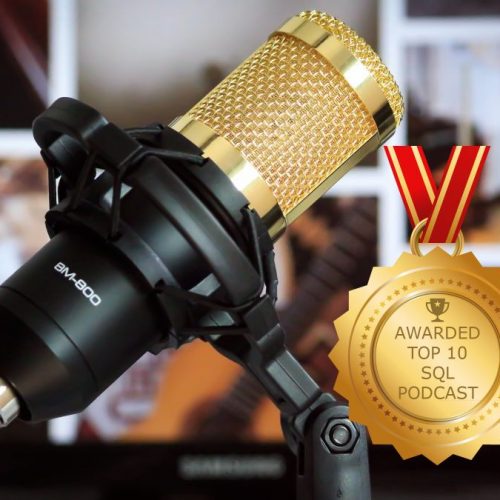
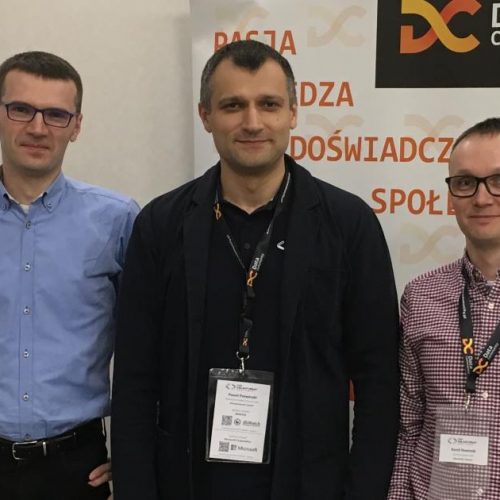
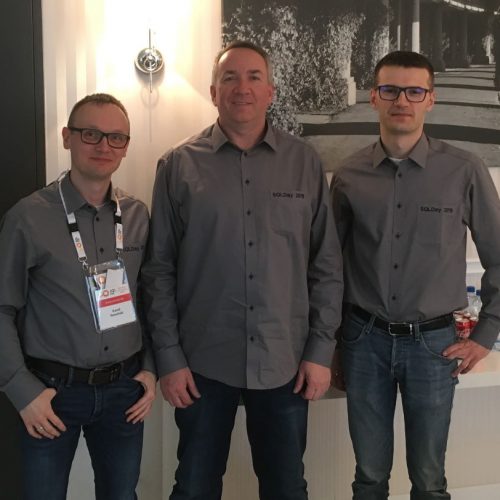
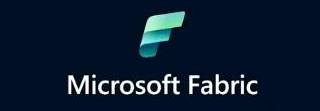

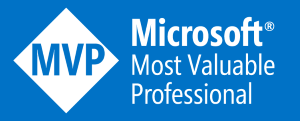

0 Comments
No Comments Yet!
You can be first to comment this post!